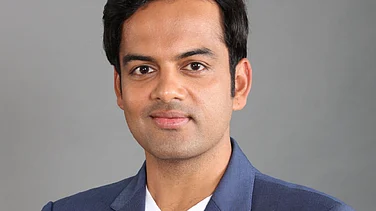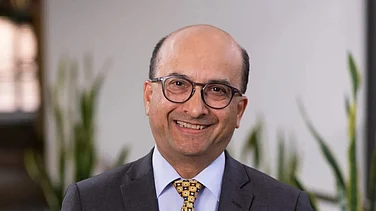Kerala has emerged from its image as a 'communist state' to a leader in ease of doing business. What key reforms drove this change, and how will the state maintain its edge amid rising competition?
We Communists are not working in a communist system. We are working in a capitalist system. We are working within the framework of this country. We are leading the government and working as a part of the government within the constitutional framework and the legal framework of the country. This government is not working to establish a communist society. We are trying to establish, to try to implement the good things of that government; the Congress government, they were not ready to implement.
We are focusing on this. This land distribution is a Congress program, not a communist program, but the government focused on that. In 1957, EMS (EMS Namboodiripad) invited Birla. At that time, the communists shouted slogans against Tata, Birla, and Goenka, but EMS invited Birla to establish an industry in Calicut. We are working within a framework where we should attract more investments to create more employment opportunities for our youth. Then we can fulfill the promises we have given to the public, the common man.
In our manifesto itself, we have declared that Kerala should be number one in ease of doing business in 2026 and within the top 10 in the 2024 ranking. That was our promise, and we could fulfill that promise by 2023-2024 itself; Kerala is number one. But the thing is we have implemented most of the reforms directed by the union government, but we did not amend any labour laws, taking away any of the facilities of the workers. We are trying to simplify this process to establish an industry, and also our recognition of most of the reforms is based on citizen-centric principles, which has given more transparency to the citizens of the state. Then we got the ranking; that is, we are the top achiever. We are the top achiever in nine categories; that is why we are, de facto, number one.
Also Read : Investment Friendly Ecosystem Helped Kerala in Achieving Ease of Doing Business Reforms: CM
What are Kerala’s land reform plans, and how will industry concerns about investment and jobs under the Kerala Land Reforms Act be addressed?
We had implemented in the several decades before, land distributed, and that is because our land is very costly, it is distributed. In labour, our people are working in highly paid jobs. The Labour code is not implemented in any of the states, including Kerala, but recognizing the changes in the scenario, we have taken several steps to simplify the process in all sectors including the labour sector. That is true. As per the Land Reforms Act, a person or a company or a trust can own only a maximum extent of land of 50 acres, but there is an exemption clause. Then earlier it was more confusing, and several issues were there.
Now, we have constituted a minister-level committee. Then if their project is to ensure 20 crore rupees investment and 10 crore investment and 20 employment per acre in addition to that acre, then this committee will give sanction for that land exemption from this existing act. That is, if you have a plan to establish an industry on 20 acres of land, then 5 acres are excess, then 5 into 10, 50 crore of investment and 100 employment opportunities are ensured, then we are ready to give that exemption, simplifying that process now.
Also Read: Kerala Best Suited for Medical Devices Industry, Says Minister P Rajeeve
Have you so far received any sort of suggestions either from domestic investors or from foreign investors in terms of simplifying regulations or any other laws for them?
We have decided to organize this event in 2021 itself because this is a journey. We had the investing community first meet the minister program. We had organized, we met the investors physically, sector-wise and individually, and that was a learning process. On the basis of those discussions and that input, we have made several new laws, changes to several existing laws, and also changes to several rules, making several new notifications and new government audits.
We conducted several preparatory programs, roundtables, roadshows, and conglomerates. In these conglomerates, roadshows, and roundtables, we learned from the investor community, and before finalizing the industrial policy 2023, the draft was published in the public domain. We discussed it with the stakeholders, and on the basis of that discussion, we finalized the industrial policy also, and that process is over. Now this is the easiest place to run an industry or invest. This is the easiest place in the country.


























